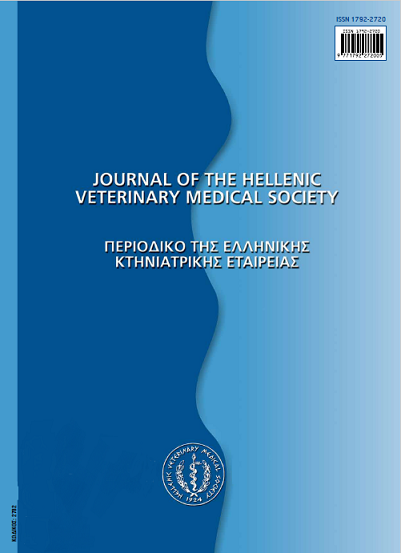Consumer Protection and Food Safety in Greece: Sanctions imposed by Hellenic Food Authority, in the years 2005-2013
Abstract
The enforcement of food safety legislation consists of a number of procedures, that may lead in certaincases in imposing administrative penalties and fines, in an effort to alter the nonconformity status of certain food establishments, according to the predefined legislative standards. The aim of this study is to evaluate data upon nonconformity of food establishments in Greece, in order to define trends and frequencies in the general framework of food safety and consumer protection. Hellenic Food Authority (EFET), the competent authority for food safety in Greece, during the period 2005-2013, imposed fines to food establishments that mount to 17,513,900€ for food safety violations. Most of the fines were imposed at mass catering establishments (21.6%) followed by supermarkets (16.2%), food industry (15.1%) and food manufacture establishments (10.7%). Moreover Attica Prefecture is the region with the highest, in number, imposed fines (32.4%), followed in descending order by the Prefecture of Central Makedonia (31.5%) and of Crete (9.6%). Significant difference, in imposing fines (χ2 test, p≤0.05), was observed between mass catering establishments and violations concerning: i. Good Hygiene Practice (GHP) ii. infrastructure, iii. consumer misleading, iv. sale of unsuitable foods, v. preservation temperatures, vi. lack of food handlers training in food safety, vii. lack of food handlers booklet and viii. traceability systems. Moreover significant differences were observed between the level of the imposed fine and the type of violations (t-test, p≤0.05) concerning: i. only or and GHP, ii. only or and the sale of unsafe foods and iii. only or and issues of consumer misleading. According to Pearson coefficient there is a weak negative although significant (p≤0.001) correlation between years and the level of the imposed fines (r=- 0.079). In addition violations related to HACCP system, that resulted in imposing fines to food establishments by EFET in 2012, corresponded to 31.8% of the total delinquency concerning HACCP system ascertained by the Prefectural Directorates, that are in charge of official control in the field of food hygiene.
Article Details
- How to Cite
-
GRINTZALI, G., PEXARA, E., CARAYANNI, V., & BOSKOU, G. (2018). Consumer Protection and Food Safety in Greece: Sanctions imposed by Hellenic Food Authority, in the years 2005-2013. Journal of the Hellenic Veterinary Medical Society, 69(2), 965–972. https://doi.org/10.12681/jhvms.18065
- Issue
- Vol. 69 No. 2 (2018)
- Section
- Research Articles

This work is licensed under a Creative Commons Attribution-NonCommercial 4.0 International License.
Authors who publish with this journal agree to the following terms:
· Authors retain copyright and grant the journal right of first publication with the work simultaneously licensed under a Creative Commons Attribution Non-Commercial License that allows others to share the work with an acknowledgement of the work's authorship and initial publication in this journal.
· Authors are able to enter into separate, additional contractual arrangements for the non-exclusive distribution of the journal's published version of the work (e.g. post it to an institutional repository or publish it in a book), with an acknowledgement of its initial publication in this journal.
· Authors are permitted and encouraged to post their work online (preferably in institutional repositories or on their website) prior to and during the submission process, as it can lead to productive exchanges, as well as earlier and greater citation of published work.



